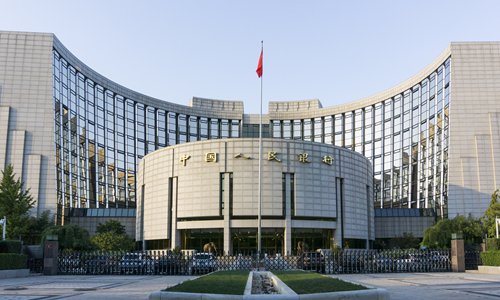HOME >> SOURCE
China likely to cut in RRR likely in March, inject $115b for economic momentum
By Ma Jingjing Source:Global Times Published: 2020/3/12 19:48:40
China’s manufacturing returns to normal in May: analyst

File photo
China is expected to cut commercial banks' reserve requirement ratio (RRR) by 50 basis points to inject 800 billion yuan ($115 billion) to spur the economy, as global economic uncertainty caused by the coronavirus crisis adds pressure to China's rebound.Two new signals indicate that it is time for China to lower the RRR and reduce interest rates that have been long expected: new bank lending in February missed expectations, and the State Council, the cabinet, called for accelerating "targeted RRR reduction measures," said Ming Ming, chief macro and fixed-income analyst at CITIC Securities.
The State Council meeting on Wednesday said that China will speed up the rolling out of inclusive targeted RRR measures to facilitate commercial banks' expansion of loans to small and micro-sized businesses and help them resume operations, according to a statement following the meeting.
Li Huiyong, an executive with Shanghai-based Hwabao WP Fund Management Co, said the People's Bank of China, the country's central bank, will likely cut the RRR by 50 basis points in March.
"China's core consumer price index (CPI) slowed to a 10-year low at 1 percent in February, signaling deflationary risks ahead," Li told the Global Times, noting that counter-cyclical adjustments should be ramped up.
With many companies in the services sector taking a hit from the outbreak, a decline in corporate profits will affect long-term expenditures and have a far-reaching effect on demand, Ming said, noting that rapid spread of the virus overseas will also affect China's foreign trade, especially exports.
He forecast the central bank will cut the interest rate for the medium-term lending facility, or MLF, by 5 basis points to 3.1 percent in March so as to guide down the level of the loan prime rate and cut enterprises' funding costs.
Lian Ping, chief economist at Bank of Communications, said the move should be taken as soon as possible. Since the outbreak has been brought under control in China, the main task for low-risk regions - except the epicenter Wuhan in Central China's Hubei Province - is to steadily resume economic activities, which needs policy support, he said.
Major economies across the world are moving to cut interest rates to hedge the fallout of the coronavirus. The latest is the UK, whose central bank announced on Wednesday it would slash its main interest rate by 50 basis points to 0.25 percent to help prevent a temporary disruption from the outbreak.
As the European Central Bank (ECB) is about to hold a telephone conference to vote on interest rates on Thursday, investment banks predicted that there is a 45 percent rate that the ECB will cut rates, and another 20 percent probability that the bank will consider quantitative easing, media reported.
Due to major economic disruptions brought by the outbreak, the Organization for Economic Co-operation and Development has estimated that global GDP growth will slow to 2.4 percent in 2020.
"Amid the slowing world economy, China needs to spur domestic consumption, such as cars and real estate, to fire up the economy," Li said. The manufacturing sector bottomed out in February and may return to normalcy in May, Li said.
The impact of the virus on Chinese GDP growth will be only 0.5 percent for the whole year, and with relatively loose fiscal and monetary policies, the economy is expected to grow 5.5 percent.
Newspaper headline: Recovery calls for RRR, interest rate cuts
Posted in: ECONOMY